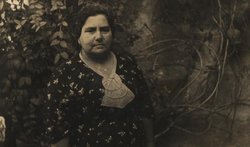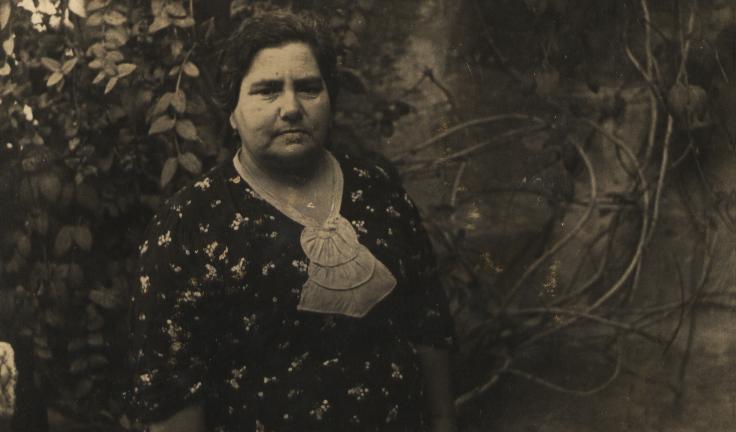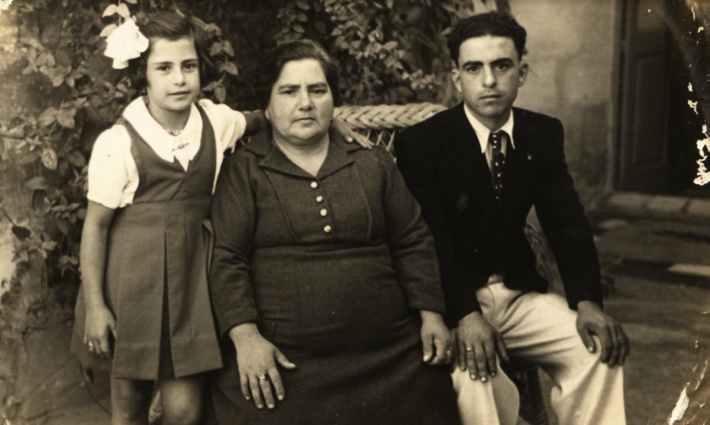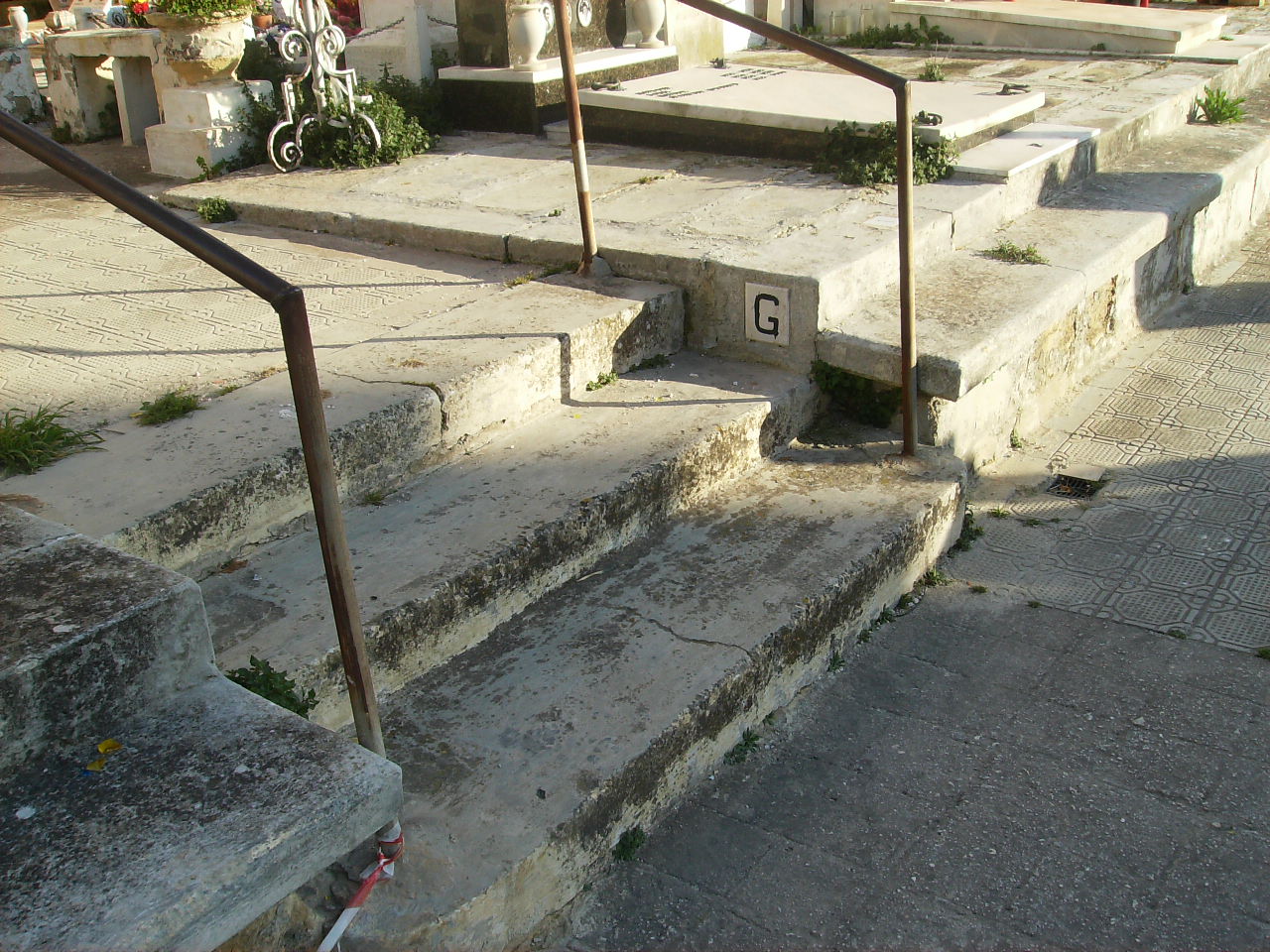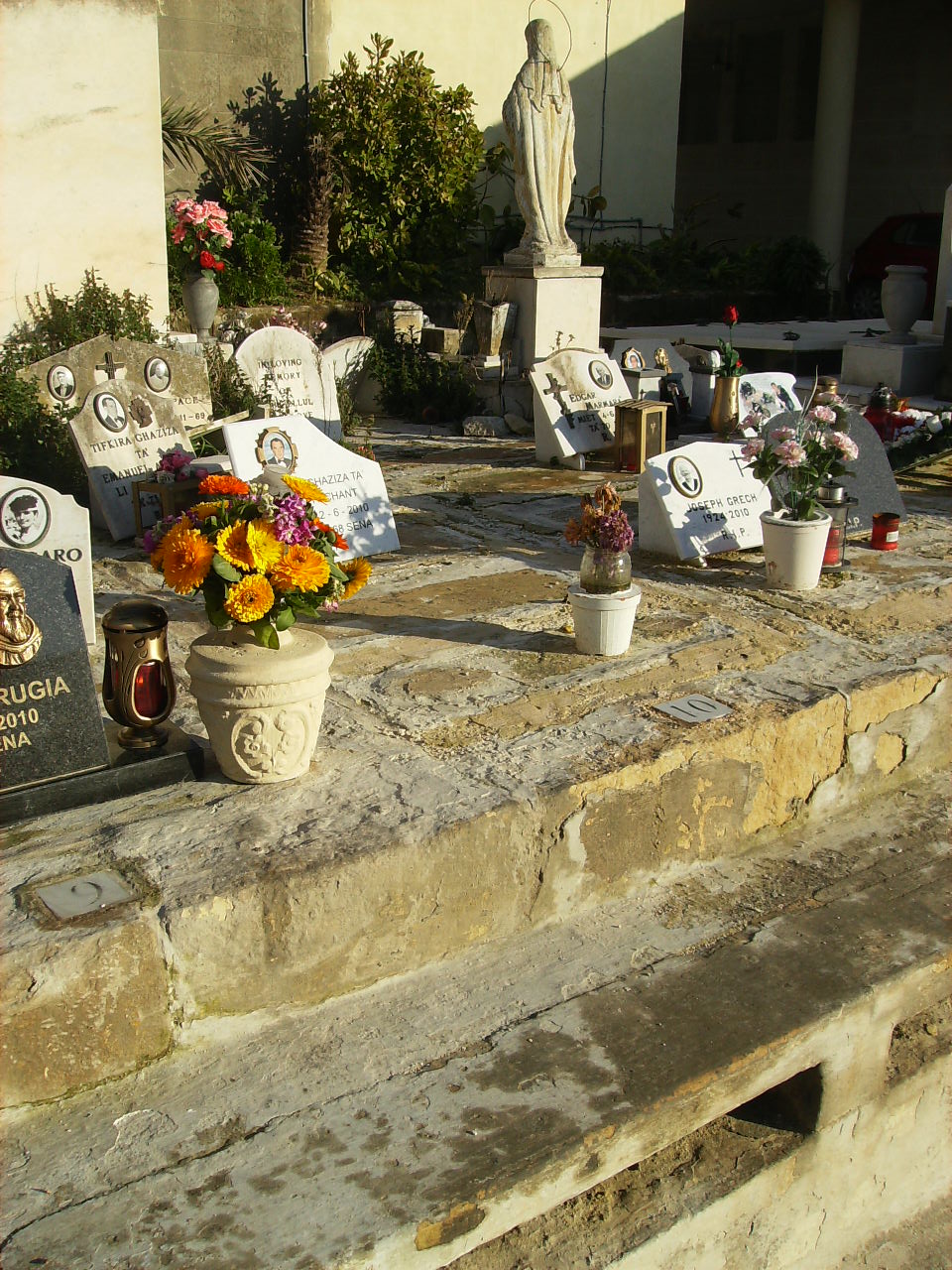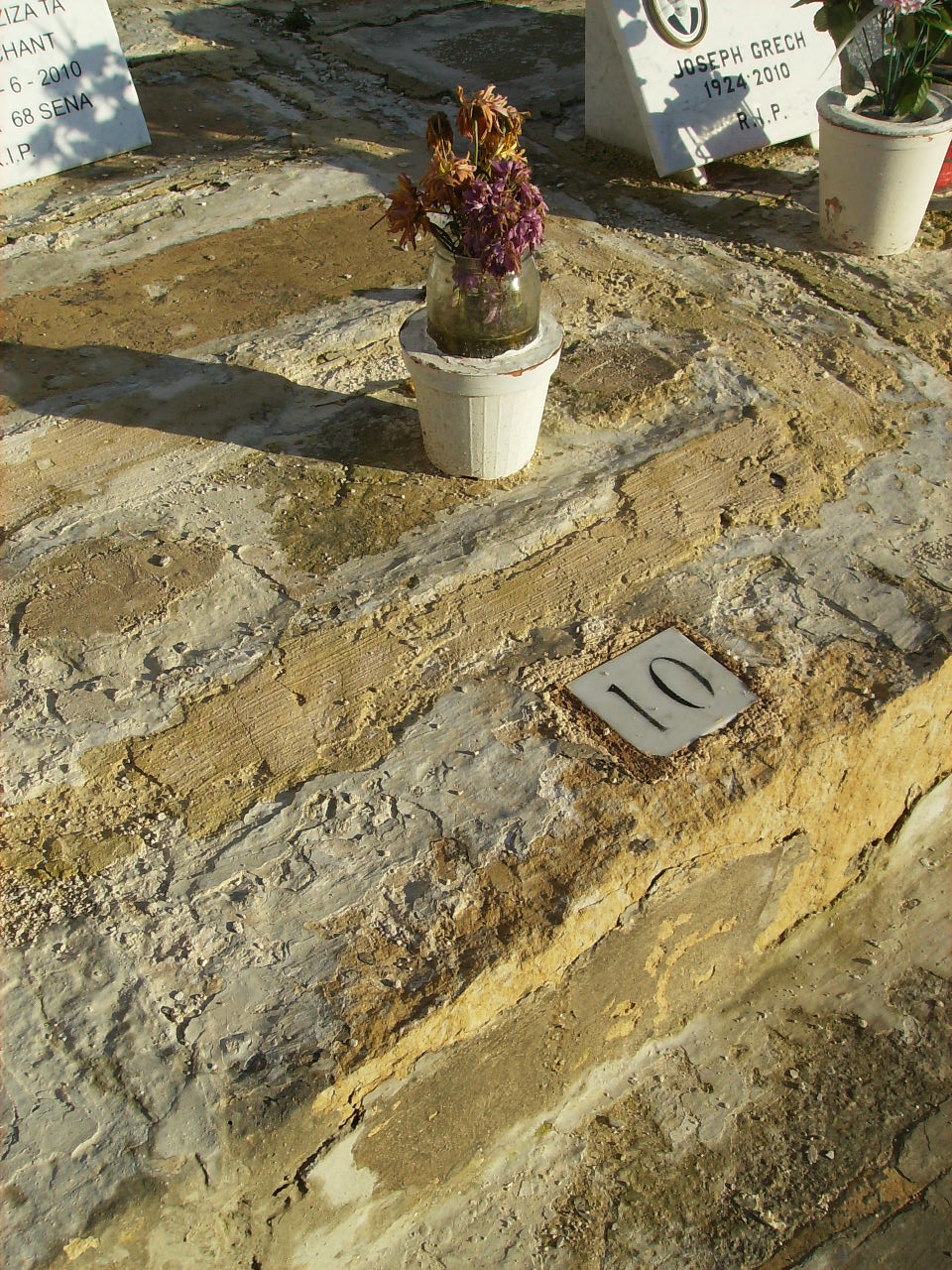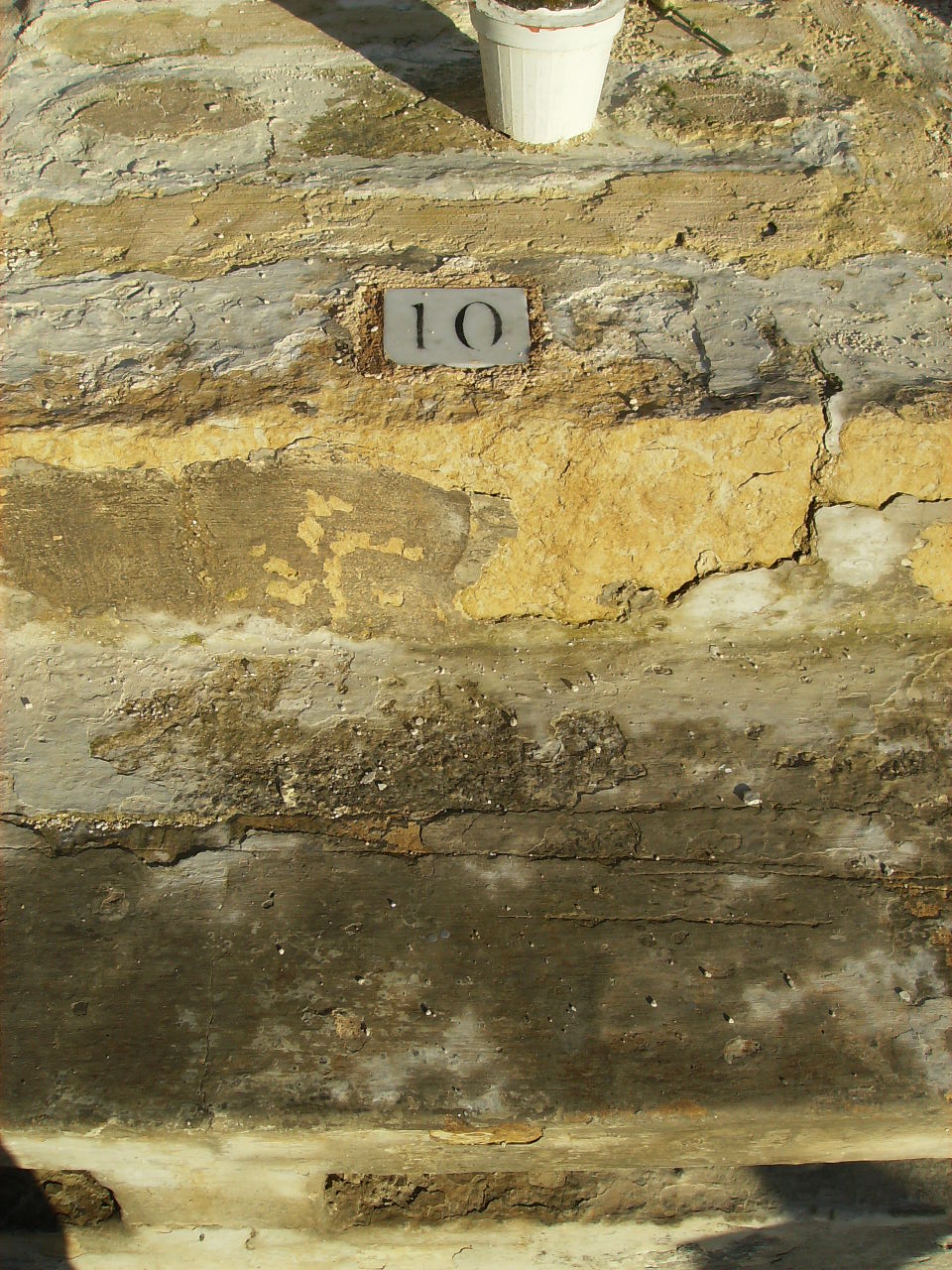Giovanna lost her mother when she was still two years or age. Her father remarried for the children's sake. She married John Baptist Barbara of Tarxien on October 16, 1921, who happened to be her first cousin, through a special Papal dispensation and mothered five children. Two male children died in infancy. Three of them survived. Joe, the eldest would later settle down in New South Wales, Australia, where he passed away in 2007, as did the youngest child, Katy, where she also died in 1999. Carmela was the only one who got married. Her marriage to Joseph Baldacchino of Cospicua lasted 52 years, until the death of her named husband. Three children were born out of this wedlock.
For years, Ġanna cared for her elder aunts, Nata, Carmela and her husband Carmelo of Tarxien - her husband's parents - her stepmother Euphemia and her father Nicola. Thus she moved continuously in order to assist her elderly growing relatives at their own residence. Following the death of her father in 1939, with whom she resided for years at his residence in Strada Marsascirocco in Zejtun, her husband wanted to settle in his native Tarxien, thus they moved to their newly rented house next to the All Souls Cemetery.
"Ġanna ż-Żejtunija", as she was known by her neighbours, led a life of deep sacrifice, especially following the unexpected death of her husband. John Baptist used to work hard, but had the bad habit of drinking too much wine. Ġanna used to buy him at least six bottles of wine a day, saving two from his sight as if he would be aware of them he would dispense of them all in no time. If he would wake up asking for more wine, after he would have already finished the first four, she would give him the rest. He was however a quiet man, and notwithstanding all the alcohol he used to consume, he would never raise any quarrels or arguments which too much wine sometimes provoke. Employed at the Gas Factory in Marsa, one fine day he fell sick and his workmates put on a bench, passing out a few minutes later. Cirrhosis of the liver had taken its toll.
Few if any people used to have a telephone installed in their homes in those days. Such news would be delivered by a police constable verbally. A policeman drove to Tarxien on a motorcycle, looking for the late John Baptist's residence in St. Francis Street. Several policemen back in days were given the job simply because they were tough or to pick stray dogs from the street. Education wasn't part of the requirements. This policeman happened to be one of these fellows. A rough knock on the door and as soon as Ġanna opened the door, he told her roughly, "Your husband is dead. What are you going to do with him?"
Poor Ġanna was left speechless and she started to cry. "What am I supposed to do with him?" she replied. "I'm not going to bring him here with three young children around. Why didn't you take him to hospital instead of leaving him there lying on bench to die?" An elderly retired man, who lived with his spinster daughter opposite her, named Vitor, who used to sit on a chair on the pavement, saw her crying and crossed the road to see what was wrong. Upon learning the news, he asked her to prepare a bundle with some clothes and he went to take care of John Baptist's body and internment the next morning at the Santa Maria Addolorata Cemetery. The eldest child, Joe, who was still a young boy, left school in order to support his mother and two sisters. He was first employed by a well-off lady as an errand boy in Valletta, until he was given a job at the Gas Factory, where his father once worked and died.
Raising three children all by herself, with no allowances for support was tough for her. She used to wash linen for some well-off couples in order to provide food for her young children. Along the years she had to sell most of her belongings, including her few pieces of jewellery, in order to buy food for them. Katy entered on her request a Church-run institute at a very early age and Joe soon left for Australia in order to seek for a better job. Money from his side never failed to reach his mother.
Her youngest daughter had by now left the orphanage and was staying with her, while her other child, Carmela got married at seventeen years of age in September 1952. As she was growing older, Ġanna drew up the idea of having all her furniture and crockery removed in order to make room for a new bedroom. Antiques were considered useless stuff in those days, so all the invaluable items which she had inherited from her parents, were given to a rag and bone collector who offered her a miserable sum, and thus she ordered her new bedroom. Ironically, she never used it, and she left it in case she would need it one day, and used to sleep in a small bed beneath the staircase.
A deeply devout, pious woman, Giovanna led a simple lifestyle. A quite person by nature, she used to spend hours in prayers, which she recited from her numerous prayer books and holy cards. Acute emphysema was now leaving Ġanna with deep lack of breath. Barely leaving her residence, several people used to drop by for a visit, including a young Ċikku Saliba, who later became the Second Superior General of the MUSEUM Society. For Christmas of 1960, maybe sensing that it would be her last, she asked her son-in-law to make a lighting set on her small crib, as "maybe I won't see it next year". And she was right. Giovanna passed peacefully away at her residence on February 13, 1961, aged 61, and was buried wearing a blue dress, at Tal-Erwieħ Cemetery in Tarxien, located next to her residence.
Giovanna lost her mother when she was still two years or age. Her father remarried for the children's sake. She married John Baptist Barbara of Tarxien on October 16, 1921, who happened to be her first cousin, through a special Papal dispensation and mothered five children. Two male children died in infancy. Three of them survived. Joe, the eldest would later settle down in New South Wales, Australia, where he passed away in 2007, as did the youngest child, Katy, where she also died in 1999. Carmela was the only one who got married. Her marriage to Joseph Baldacchino of Cospicua lasted 52 years, until the death of her named husband. Three children were born out of this wedlock.
For years, Ġanna cared for her elder aunts, Nata, Carmela and her husband Carmelo of Tarxien - her husband's parents - her stepmother Euphemia and her father Nicola. Thus she moved continuously in order to assist her elderly growing relatives at their own residence. Following the death of her father in 1939, with whom she resided for years at his residence in Strada Marsascirocco in Zejtun, her husband wanted to settle in his native Tarxien, thus they moved to their newly rented house next to the All Souls Cemetery.
"Ġanna ż-Żejtunija", as she was known by her neighbours, led a life of deep sacrifice, especially following the unexpected death of her husband. John Baptist used to work hard, but had the bad habit of drinking too much wine. Ġanna used to buy him at least six bottles of wine a day, saving two from his sight as if he would be aware of them he would dispense of them all in no time. If he would wake up asking for more wine, after he would have already finished the first four, she would give him the rest. He was however a quiet man, and notwithstanding all the alcohol he used to consume, he would never raise any quarrels or arguments which too much wine sometimes provoke. Employed at the Gas Factory in Marsa, one fine day he fell sick and his workmates put on a bench, passing out a few minutes later. Cirrhosis of the liver had taken its toll.
Few if any people used to have a telephone installed in their homes in those days. Such news would be delivered by a police constable verbally. A policeman drove to Tarxien on a motorcycle, looking for the late John Baptist's residence in St. Francis Street. Several policemen back in days were given the job simply because they were tough or to pick stray dogs from the street. Education wasn't part of the requirements. This policeman happened to be one of these fellows. A rough knock on the door and as soon as Ġanna opened the door, he told her roughly, "Your husband is dead. What are you going to do with him?"
Poor Ġanna was left speechless and she started to cry. "What am I supposed to do with him?" she replied. "I'm not going to bring him here with three young children around. Why didn't you take him to hospital instead of leaving him there lying on bench to die?" An elderly retired man, who lived with his spinster daughter opposite her, named Vitor, who used to sit on a chair on the pavement, saw her crying and crossed the road to see what was wrong. Upon learning the news, he asked her to prepare a bundle with some clothes and he went to take care of John Baptist's body and internment the next morning at the Santa Maria Addolorata Cemetery. The eldest child, Joe, who was still a young boy, left school in order to support his mother and two sisters. He was first employed by a well-off lady as an errand boy in Valletta, until he was given a job at the Gas Factory, where his father once worked and died.
Raising three children all by herself, with no allowances for support was tough for her. She used to wash linen for some well-off couples in order to provide food for her young children. Along the years she had to sell most of her belongings, including her few pieces of jewellery, in order to buy food for them. Katy entered on her request a Church-run institute at a very early age and Joe soon left for Australia in order to seek for a better job. Money from his side never failed to reach his mother.
Her youngest daughter had by now left the orphanage and was staying with her, while her other child, Carmela got married at seventeen years of age in September 1952. As she was growing older, Ġanna drew up the idea of having all her furniture and crockery removed in order to make room for a new bedroom. Antiques were considered useless stuff in those days, so all the invaluable items which she had inherited from her parents, were given to a rag and bone collector who offered her a miserable sum, and thus she ordered her new bedroom. Ironically, she never used it, and she left it in case she would need it one day, and used to sleep in a small bed beneath the staircase.
A deeply devout, pious woman, Giovanna led a simple lifestyle. A quite person by nature, she used to spend hours in prayers, which she recited from her numerous prayer books and holy cards. Acute emphysema was now leaving Ġanna with deep lack of breath. Barely leaving her residence, several people used to drop by for a visit, including a young Ċikku Saliba, who later became the Second Superior General of the MUSEUM Society. For Christmas of 1960, maybe sensing that it would be her last, she asked her son-in-law to make a lighting set on her small crib, as "maybe I won't see it next year". And she was right. Giovanna passed peacefully away at her residence on February 13, 1961, aged 61, and was buried wearing a blue dress, at Tal-Erwieħ Cemetery in Tarxien, located next to her residence.
